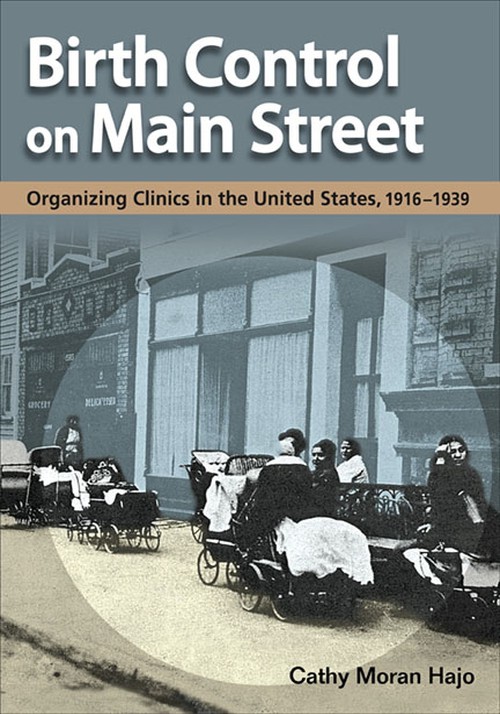
Birth Control on Main Street
Cloth: 05/31/2010
About the Book
Unearthing individual stories and statistical records from previously overlooked birth control clinics, Cathy Moran Hajo looks past the rhetoric of the birth control movement to show the relationships, politics, and issues that defined the movement in neighborhoods and cities across the United States. Whereas previous histories have emphasized national trends and glossed over the majority of clinics, Birth Control on Main Street contextualizes individual case studies to add powerful new layers to the existing narratives on abortion, racism, eugenics, and sterilization.Hajo draws on an original database of more than 600 clinics run by birth control leagues, hospitals, settlement houses, and public health groups to isolate the birth control clinic from the larger narrative of the moment. By revealing how clinics tested, treated, and educated women regarding contraceptives, she shows how clinic operation differed according to the needs and concerns of the districts it served.
Moving thematically through the politicized issues of the birth control movement, Hajo infuses her analysis of the practical and medical issues of the clinics with unique stories of activists who negotiated with community groups to obey local laws and navigated the swirling debates about how birth control centers should be controlled, who should receive care, and how patients should be treated.
About the Author
Cathy Moran Hajo is an adjunct assistant professor in New York University's Archives and Public History Program and an associate editor of the Margaret Sanger Papers Project.Reviews
"Hajo's extensive research is unmatched in the field."--The Journal of American History"Well-researched, well-organized, and clearly written, Hajo's book offers a solid social, cultural, and political history of contraceptive clinic services on the ground in a variety of local areas."--Women and Social Movements in the U.S.
Blurbs
"This useful, practical history of birth control approaches the topic from the unique perspective of the clinic. Cathy Moran Hajo offers a complete picture of how ideas about birth control affected everyday women."--Wendy Kline, author of Building a Better Race: Gender, Sexuality, and Eugenics from the Turn of the Century to the Baby Boom




